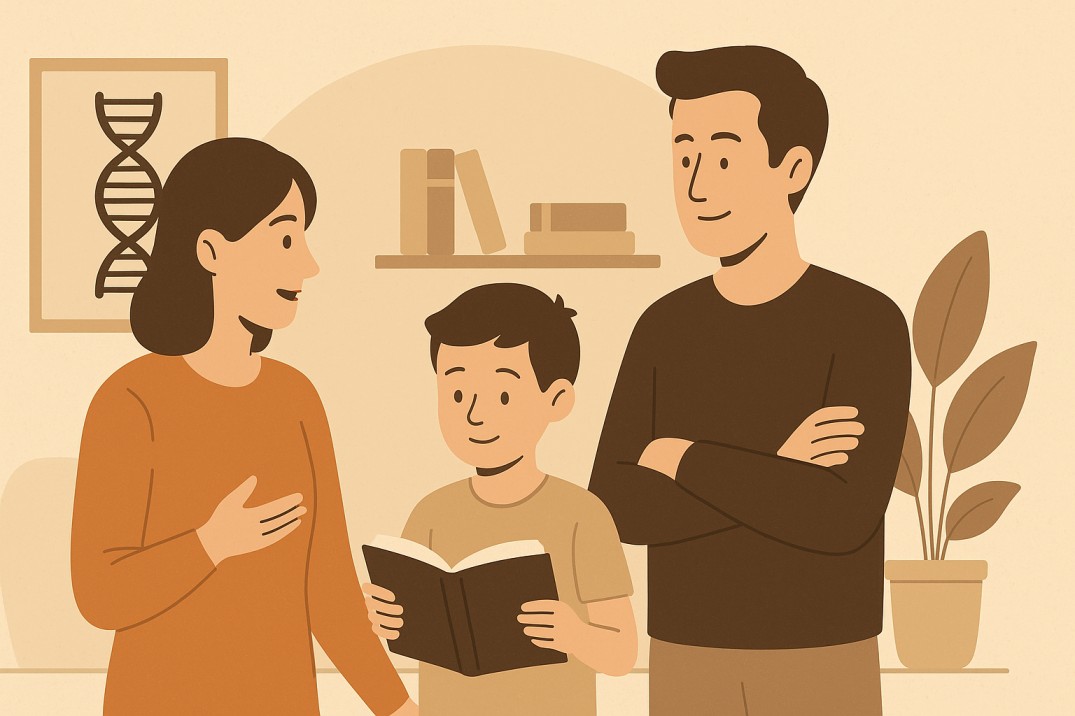PARENTAL GENES INDIRECTLY INFLUENCE CHILD DEVELOPMENT
Parental Genes Indirectly Influence Child Development
Jean-Baptiste Pingault, UCL, Feb 2025
Background of the Study
A groundbreaking report titled “Understanding the intergenerational transmission of educational (under)achievement” has brought new insights into the long-standing nature versus nurture debate. Conducted by Jean-Baptiste Pingault (UCL, Feb 2025), the study shows that parents’ genes shape children’s educational and mental health outcomes — even when not directly inherited.
This phenomenon is termed genetic nurture and highlights how parental genetics can indirectly influence child development by shaping the home environment and family values. In other words, what parents pass on to their children is not only DNA, but also attitudes, behaviors, and environments rooted in their own genetic tendencies.
Key Findings
Genetic Nurture and the Environment
Parental genes affect more than inheritance. For example, parents with a genetic inclination toward valuing education or possessing strong non-cognitive skills (like perseverance or social confidence) create an environment that fosters positive child development.
Strongest Effects in Early Childhood
The research found that these indirect genetic effects are most significant during early childhood, a critical period when children’s learning, cognitive skills, and emotional well-being are being shaped.
Socioeconomic Status and Parental Education
The impact of genetic nurture is amplified by family background. Parents with higher education and better socioeconomic status are more likely to provide enriched environments — from access to books and learning opportunities to healthier lifestyles — all of which strengthen developmental outcomes.
Policy Implications
The findings emphasize the need for early-life interventions that support both parents and children. Educational programs, parental training, and targeted policies can help reduce educational and mental health disparities across generations.
Conclusion
This research reframes our understanding of parental influence on child development.
-
Parental genes matter beyond inheritance as they shape environments and behaviors.
-
The family context, guided by genetic nurture, strongly influences child development.
-
Early interventions focusing on parental education and home environments are crucial.
-
The study by Jean-Baptiste Pingault shows that child outcomes are co-produced by both nature and nurture working together.






